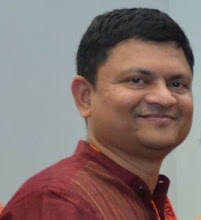The heights of popularity and patriotism are still the beaten road to power and tyranny; flattery to treachery; standing armies to arbitrary government; and the glory of God to the temporal interest of the clergy.
-David Hume (1711-1776)
David Hume was a Scottish philosopher with naturalist and skeptical overtones. His famous works include: A Treatise of Human Nature (1739-1740), the Enquiries concerning Human Understanding (1748) and concerning the Principles of Morals (1751), as well as the posthumously published Dialogues concerning Natural Religion (1779).
His sentence quoted above is a precise summary of rise and fall of empires over eons, right from the time since humans continued the animal instinct of staking territorial claims, but with external weapons (and followers to boot).
The current non-issue of singing (or not) of Vande Mataram is an excellent example. A song which originated when almost no one alive today was born, suddenly becomes a deciding factor as to weather you love your country or not. People from all walks of life are debating both sides (which in itself is a sign of a healthy democracy). What is interesting is that both sides have people who can not recite the song.
As usual, all kinds of extraneous claims are brought in. Somewhere, someone said to the Indian Americans commenting on the issue: "will you dare to not sing the American anthem in the US"? A fact that not many may know is that in the US burning the US flag as part of a political protest is not a crime. Democracy here, at least so far as such basic issues are concerned, is still alive and doing well. The rhetoric in India, on the other hand, has increased manifold.
What could the causes be? The unsustained growth in public media resulting in unethical oneupmanship, the extreme competitiveness due to increasing population, the plethora of political parties ready to take advantage of this, and the religious underpinnings of a typical persons life concoct a deadly cocktail that sometimes explodes and sometimes gets puked on to everyone around.
If only people understood the following three principles:
(1) one's love for one's nation can simply not be decided by what (s)he says or does not say (or whether (s)he accepts or not what the majority does) [freedom of expression],
(2) the love for humanity should be at least as strong as the love for one's nation (and its people) [freedom of thought allowing one to not do something if it hurts humanity even if it is good for the country], and
(3) in the eyes of the one God all religions ought to be the same and so one can practise any religion [religious freedom].
Democracy will be dead when one has to give up any of the above three. The trouble of course is that everyone wants everyone else to start practicing this first and hence they themselves do not. Be it the temporal interest of the clergy or territorial interest of the standing army, it sows seeds of hatred in the mind of commoners, dividing them unnecessarily. What Blaise Pascal said is a perfect statement to summarize the situation.
Can anything be stupider than that a man has the right to kill me because he lives on the other side of a river and his ruler has a quarrel with mine, though I have not quarreled with him? (Quoted by Tolstoy in Bethink Yourselves)
Subscribe to:
Post Comments (Atom)




No comments:
Post a Comment